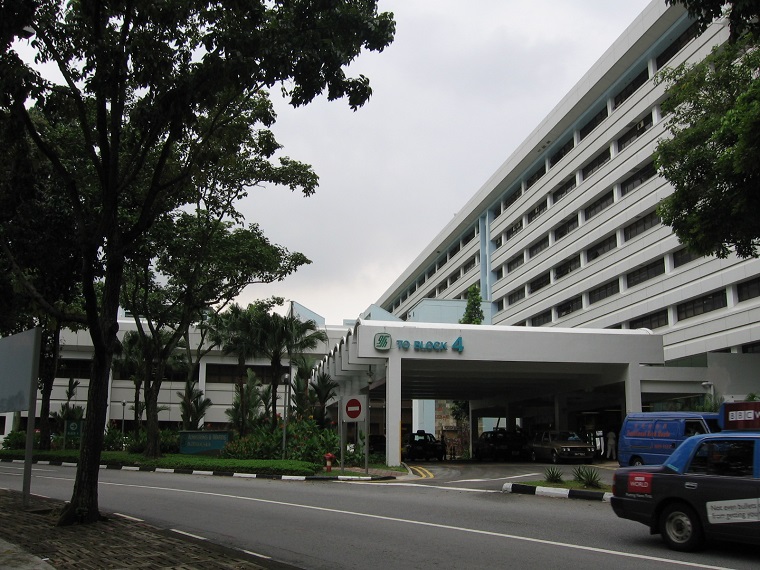It's in — the independent review committee that looked into the Hepatitis C virus (HCV) outbreak at Singapore General Hospital (SGH) has released its report on its findings today (December 8).
Three days prior, their report was submitted — and later accepted, by the Ministry of Health (MOH), and if you'd like to read the entire thing, it's available here.
It's 80 pages long, though, so we thought we'd take you through some key points from a shorter version of it:
1. The Hep C outbreak at SGH occurred because of multiple factors involving, chiefly, breaches in infection control.
The report studied four possible ways the outbreak happened: 1) drug diversion; 2) intentional harm/foul play; 3) contaminated medical products; and 4) breaches in infection control.
It ruled out the first three:
1) because there were no missing drugs or any with the potential for abuse in the affected wards;
2) after interviewing more than 300 staff who worked in and around the wards, alongside police who agreed; and
3) the only medical product used throughout the wards was 0.9% Saline solution, which tested negative for Hep C.
Notably, it said that there "were some gaps in infection prevention and control practices in the two affected wards in SGH (i.e. Ward 64A and Ward 67)."
The gaps include:
1) Deviations from standard procedures in administering intravenous procedures, such as blood-taking and giving of intravenous medications;
2) Inefficient workflow in the affected wards; and
3) Evidence of contamination of medical equipment (such as computerised medical carts and trolleys) and contact surfaces, as a result of inadequate cleaning and disinfection practices.
And the factors leading to the outbreak were:
a) the concentration of many highly-vulnerable patients in the same ward, because quite a few (20 of the patients who contracted Hep C) had received kidney transplants and had their immune systems suppressed — so once infected, the virus multiplied exponentially faster in them;
b) these patients had many medications given to them through injections and tests that involved blood-taking, so the risk of contracting Hep C was that much higher;
c) the gaps discussed above, as well as the move to the holding ward 67A, which had a different and unfamiliar layout from ward 64.
In a Dec 8 article from The Straits Times, it was also reported that on Nov 2, the team sent by the IRC to investigate the outbreak had found a spot of blood containing HCV in a supposedly 'clean' room and that "the virus can remain infective in the environment for several weeks, and in one reported case, up to a year."
2. There were several key problems in the response and communications system between the hospital, SingHealth and the Ministry of Health.
- The review found that SGH's Renal Unit took too long to recognise that there was an outbreak, and so delayed reporting it to the hospital's Infection Control department for help in containing it.
- With regard to notifying MOH of the diseases — MOH should have by right been alerted of all acute Hep C cases within 72 hours, but wasn't in this case. The doctors and laboratories failed to inform the ministry of all the cases that were diagnosed, the committee said.
Additionally, MOH's Communicable Diseases Division — the folks who are informed of these diagnoses — in turn didn't classify the initial cases they were notified of as acute, even though the patients concerned had abnormal liver function tests.
Why not, you might ask? Because
"the cases were assessed not to meet the case definition of an acute infection at the time".
- Turning to how SGH managed the crisis happening in its renal wards, the review committee said even though it started investigating in mid-May and enhanced its infection control measures from June, the hospital's internal investigations into the outbreak were incomplete.
Some of the things were only done after they met with MOH's director of medical services, Prof Benjamin Ong, on September 3.
- Many steps in communication and escalation were delayed because, as the review committee found, there was no "established framework" for these things, and essentially, there was no one within the Ministry whose job it is to respond to infectious outbreaks — at least not until it reached Prof Ong.
- This part's important, though — from the time it did reach Prof Ong, the review committee said there was "no evidence of deliberate delays by SGH or MOH staff in escalating the outbreak or in informing the Minister for Health."
From the report:
"The IRC is of the opinion that the additional investigations and actions required by DMS are professionally valid and appropriate. Overall, while there were gaps in identification, management and reporting of the outbreak, there was no evidence to suggest that escalation to DMS and subsequent notification of the Minister had been deliberately delayed."
The Committee's report has also provided recommendations to better deal with such outbreaks in future.
MOH has said that it has accepted them. Health Minister Gan Kim Yong said that a taskforce led by Minister of State Chee Hong Tat will look at how to enhance detection of and response to infectious disease outbreaks in Singapore.
Related articles:
5 important questions we hope the MOH review on the Hep C outbreak can answer
If you like what you read, follow us on Facebook and Twitter to get the latest updates.
If you like what you read, follow us on Facebook, Instagram, Twitter and Telegram to get the latest updates.
